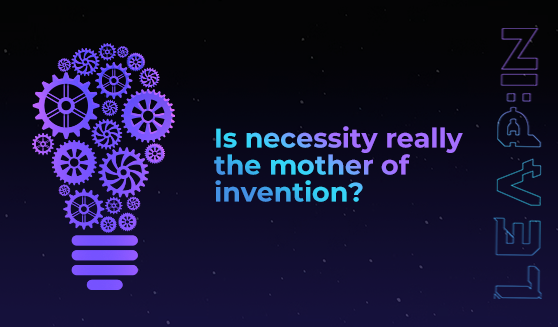
Tech careers with impact: The power of investing
If you’ve ever thought about becoming a tech investor, read this – learn why investors are the quiet force shaping the future of the industry.


Are you ready for #LEAP23. We are – and our keynote speakers are, too. Take a glimpse into their worlds.
This week we’re quoting…
Sebastien Gendron (Co-Founder and CEO at TransPod)
What Gendron said:
“The most open-minded regions embracing radical innovation are the oil and gas regions – Alberta and Texas in North America, the UAE and Saudi Arabia in the Middle East and Australia.”
Innovation and inspiration – by necessity
Gendron’s comment came in the context of hyperloop travel: suggesting that the regions that are most open to the idea of a completely new, ultra-high speed mode of transport are the oil and gas regions.
And this is really interesting from a broader perspective too. A growing number of studies (like this one by the Brookings Institution, and this one by the University of Manchester) show that in order for countries to build stable, sustainable economies, they have to move away from reliance on fossil fuels.
But you can’t just quit fossil fuels
You have to build other industries to offer new opportunities, drive new investments, and build a new economic model.
And that’s creating a new kind of openness: as Gendron put it, these regions are embracing radical change.
What does that look like in real life?
It looks like…
There’s that old proverb…
Necessity is the mother of invention.
And time and time again, the proverb comes true.
Read the interview: What are the true benefits of ultra-high speed travel?
This week we’re also quoting…
Mads Skrubbeltrang (Rector at Ørestad Gymnasium)
What Skrubbeltrang said:
“Technology in education has changed from being something exotic and difficult, to a mandatory tool that helps innovative thoughts come alive.”
True.
It’s now the norm for schools to integrate tech into their day-to-day teaching. Some schools use more tech than others – and the most high tech schools are now looking to emerging technologies to elevate their students’ learning.
What emerging tech will we soon see in schools?
AR simulations: experts have suggested that AR could be used to improve educational inclusion, and this review of 25 years of AR research suggests that it could help students to learn new skills, develop ideas, and experience new possibilities. AR can capture our imaginations and allow us to visualise our dreams – so it may well influence the way young people learn in the future.
Adaptive learning tech: we’ve known for a long time that there’s no one-size-fits-all approach to education, because every child is different; and schools can’t meet the individual needs of each student. Adaptive learning technologies offer a way to create a more bespoke approach to group education, by adapting dynamically to a students’ interests and learning ability.
AI: As artificial intelligence becomes more sophisticated, it’ll play an increasingly prominent role in school education. AI is going to be a part of society and human life going forward, so young people need to understand it; and the first step is to make sure that teachers understand it.
Support students > support society
OK, so these technologies probably won’t become mandatory tools for learning in most schools any time soon. But looking further into the future, they could well become commonplace – and we’re excited to see how they’ll shape the future.
Read the interview: The subtle roles of tech in education

If you’ve ever thought about becoming a tech investor, read this – learn why investors are the quiet force shaping the future of the industry.

Tech generalists will enable emerging technologies to integrate across industries and societies in meaningful ways. We still need specialists – but we also need big-picture people.

Discover three tech sectors facing a talent shortage this year. Could you find your ideal role in a high-demand sector like cybersecurity, cloud computing, or artificial intelligence?

If you’ve ever thought about becoming a tech investor, read this – learn why investors are the quiet force shaping the future of the industry.

Tech generalists will enable emerging technologies to integrate across industries and societies in meaningful ways. We still need specialists – but we also need big-picture people.

Discover three tech sectors facing a talent shortage this year. Could you find your ideal role in a high-demand sector like cybersecurity, cloud computing, or artificial intelligence?